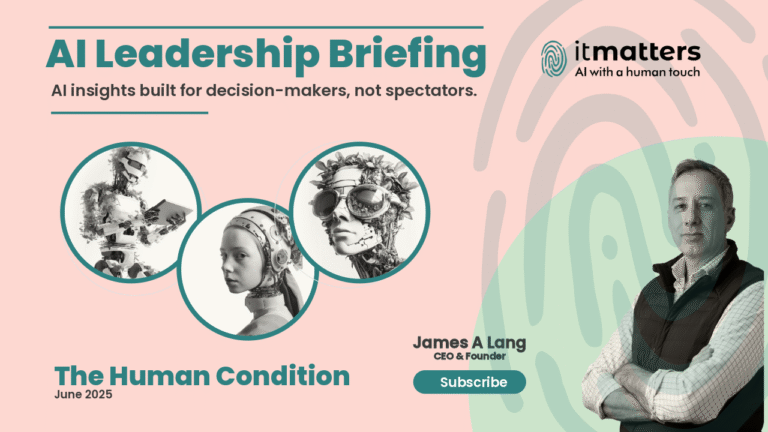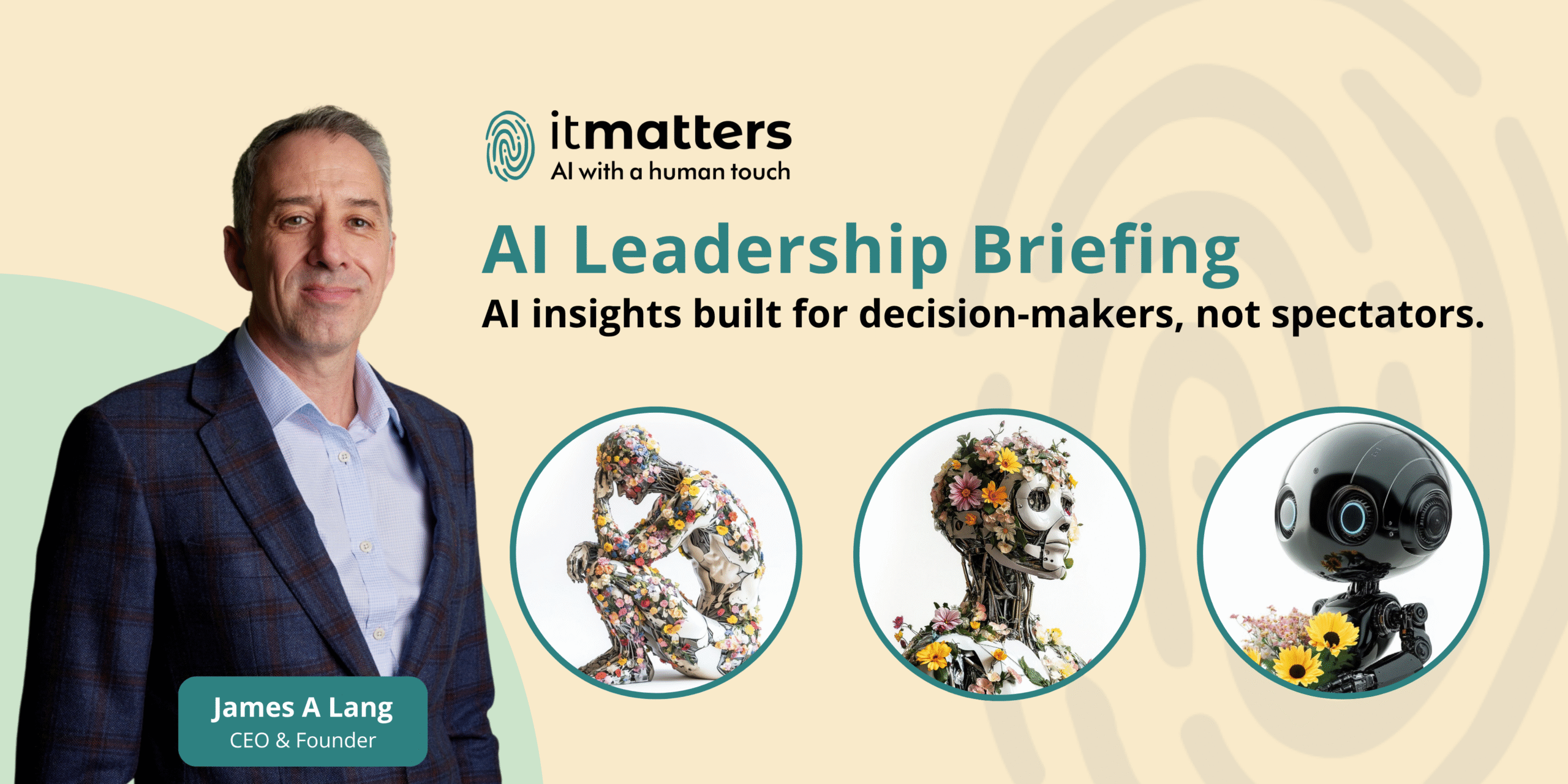The itmatters AI Leadership Briefing
AI insights built for decision-makers – not spectators.
Series: Week 4, June 2025 – Identity, Flaws, and the Myth of Perfection
Edition Date: Tuesday 24 June 2025
AI’s promise is precision.
But in our relentless push toward performance metrics and accuracy benchmarks, we risk embedding flawed AI systems that mistake conformity for correctness—and perfection for trust.
From AI hiring tools to diagnostic bots, the myth of machine infallibility is not just misleading. It’s dangerous.
Reflective Human Insight
Flawless is unrelatable.
Perfection is not what makes us trust—vulnerability is.
If AI can’t acknowledge complexity, it will never earn confidence.
Today’s Tactical Signals
1. Amazon AI Hiring Tool Rejected Qualified Candidates Due to Pattern Bias
An internal audit revealed that Amazon’s AI system systematically disadvantaged candidates whose profiles did not align with legacy success patterns.
Why it matters: When perfection is defined by past data, progress is excluded.
(Reuters, 2025)
2. NHS Diagnostic AI Flagged for Overlooking Ambiguous Cases
The UK’s NHS diagnostic AI is under review after it was found to label uncertain or mixed-symptom cases as “non-critical.”
Why it matters: Rigid logic may miss the nuance necessary for accurate and compassionate care.
(BBC Health, 2025)
3. LinkedIn AI Recruiter Under Scrutiny for Filtering Out Career Gaps
Jobseekers report being overlooked due to algorithmic bias against non-linear career paths, prompting calls for more inclusive AI models.
Why it matters: Career breaks should not be equated with a lack of capability—especially in a post-pandemic world.
(TechCrunch, 2025)
4. Stanford Research Warns That Optimising for Precision Removes Outliers—And Innovation
New findings show that overfitting AI systems to accuracy metrics can eliminate outliers—the very people who drive innovation.
Why it matters: Precision without space for difference creates a sterile system, not a smart one.
(Nature Machine Intelligence, 2025)
5. Meta Memo Advocates ‘Designed Fallibility’ to Humanise AI
A leaked internal document reveals Meta’s push to introduce controlled imperfection into generative systems to enhance relatability and trust.
Why it matters: Designing for imperfection may help bridge the empathy gap between humans and machines.
(The Verge, 2025)
Field Note from the Future
It is 2030. A precision-optimised AI filters out outliers to improve accuracy.
Over time, users disengage—those with unconventional paths feel excluded.
A forgotten research paper from 2025 resurfaces:
“Perfection kills innovation.”
The team rebuilds—this time, with room for difference.
Why it matters for leaders:
Perfection in AI is often a euphemism for sameness.
And sameness is the enemy of innovation.
As AI and hiring bias persist and AI in healthcare overlooks nuance, leaders must face the hard truth: machine precision cannot replace human complexity.
Trust in AI is not built on ideal outputs, but on systems that can explain, evolve, and admit uncertainty.
We must redefine success metrics to value not just accuracy, but fairness, inclusion, and relevance.
In the age of automation, human-centered AI means embracing imperfection—not erasing it.
Summary (Leadership Action)
Leaders must decide: Do you want perfect performance—or human relevance?
- Build systems that allow for ambiguity and nuance
Avoid overfitting by designing AI that accommodates edge cases and uncertainty. - Redefine success metrics
Include empathy, flexibility, and diversity—not just output precision. - Encourage audits to spot “perfection traps”
Conduct regular reviews of AI decision criteria, especially in hiring and diagnostics. - Recognise where innovation starts
Often, it’s not in the center—but at the margins of the data.
Historical Leadership Quote
“There is a crack in everything, that’s how the light gets in.”
– Leonard Cohen
Orders of the Day
Subscribe for tomorrow’s briefing: www.it-matters.ai
itmatters brings you the clarity, context, and credibility needed to lead in a shifting world.
Tomorrow’s Preview
What’s next for Identity, Flaws, and the Myth of Perfection?



